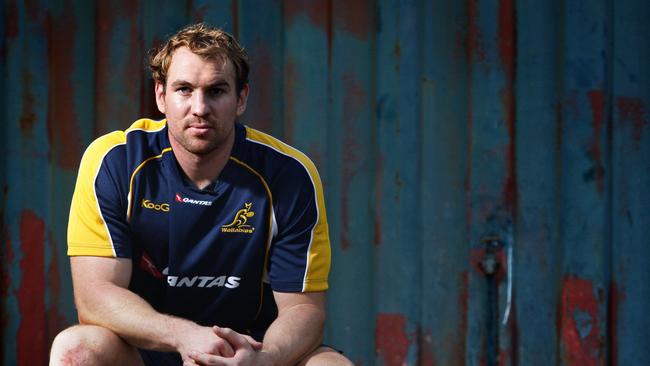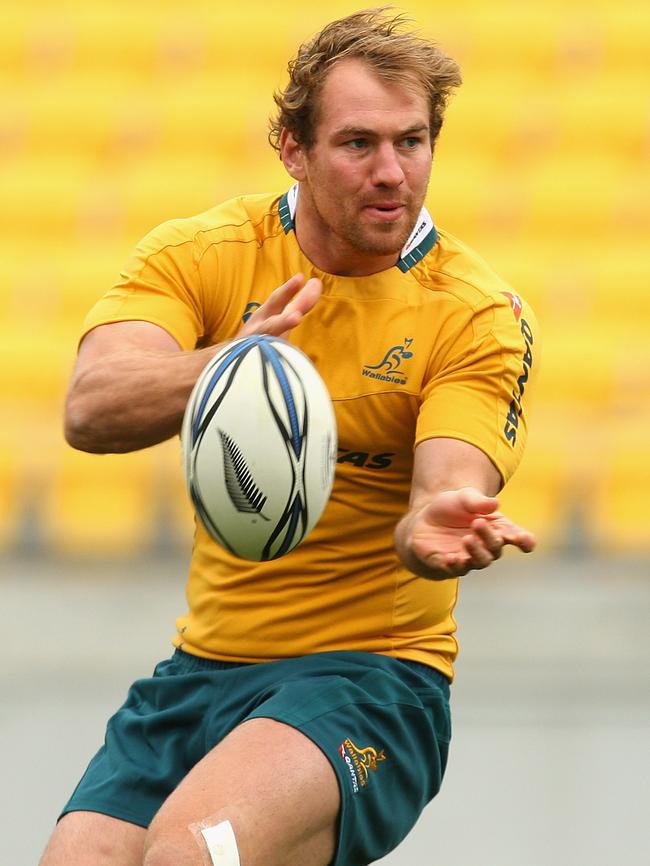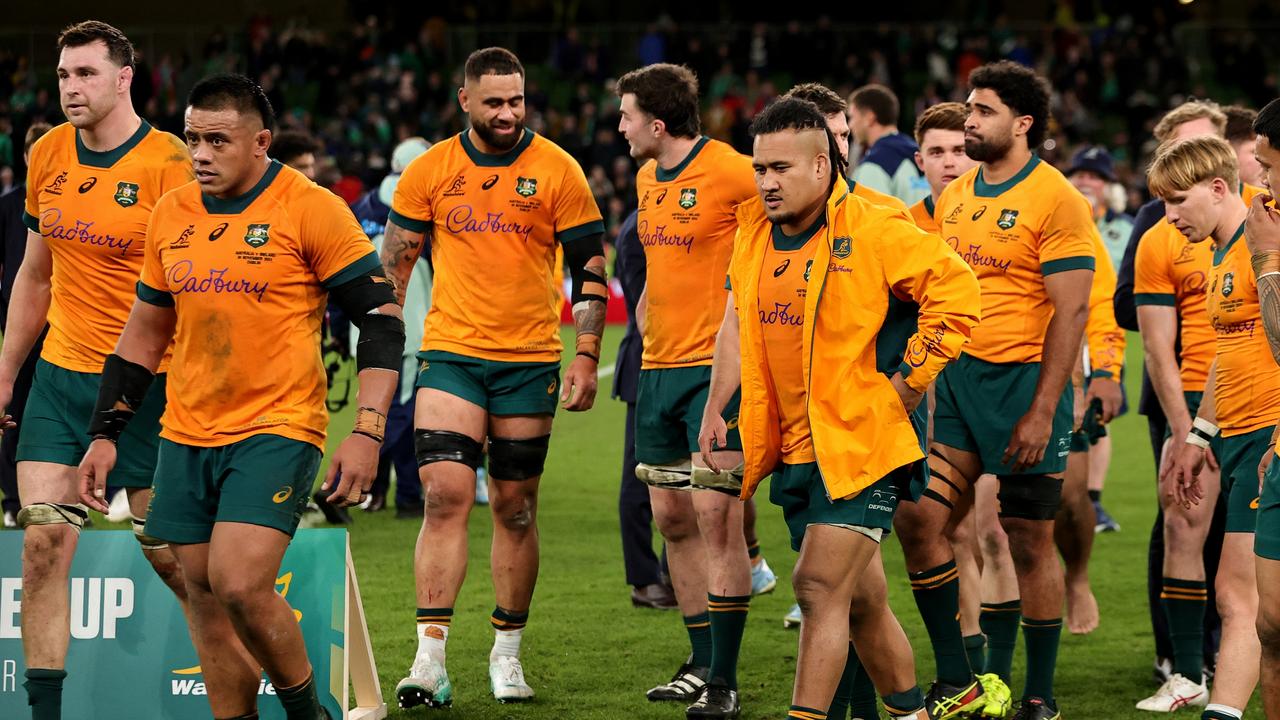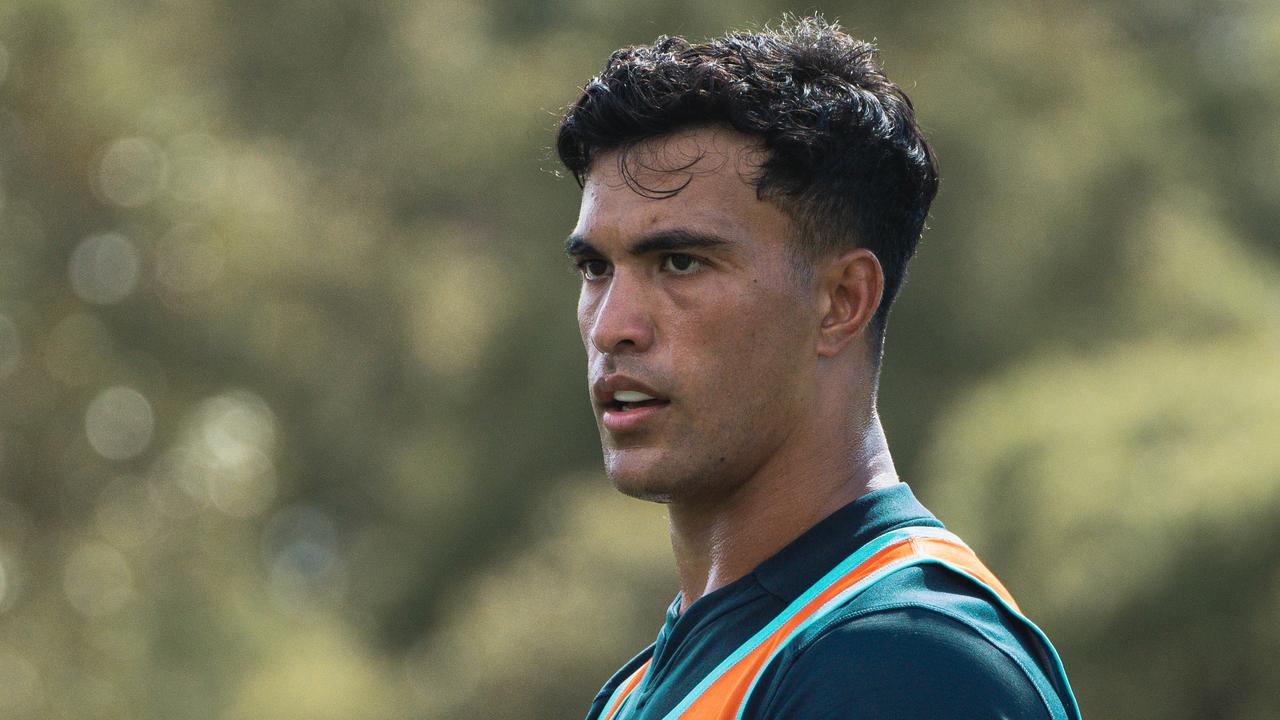Inside the French rugby club disaster that led to Rocky Elsom’s five-year jail term
When the Australian rugby captain Rocky Elsom joined a sleepy rugby outpost on the French Riviera, it was, for him, the last vestiges of his playing career. So why is he now facing jail time?

When the Australian rugby captain Rocky Elsom joined Racing Club Narbonne Mediterranee, a sleepy rugby outpost on France’s Mediterranean coastline, it was, for him, the last vestiges of his playing career.
He was 31 and it was a classic pension play, a way to extend his flagging career by a few years and provide a stepping stone into life after football, a chance to get into club management.
Now nearly nine years on and a Narbonne criminal court case centred on the financial ruins of the club has posed most difficult days for the former flanker.
In absentia, Elsom, now 41, has been sentenced to five years jail for fraud, forgery of documents and embezzlement concerning missing monies of 675,532.60 euros, an amount that was increased by 30,000 euros for moral damages.
Elsom has previuosly denied any wrongdoing and has indicted he intends to appeal the conviction.

The court has heard how Elsom had paid 79,000 euros to a former coach when nothing could justify it. Another 7200 euros a month was paid to a person living in Australia who never came to Narbonne and didn’t provide any services for the club. It has been since reported the former coach was the 2013-2016 Narbonne assistant coach and former Wallaby Chris Whitaker while the non-working person in Australia was a marketing executive from Victoria, Chris Bayman. Bayman has denied receiving any monies from the club because a role as assistant manager was proposed but never taken up.
Elsom said Whitaker was owed the payments that were made and they had been board approved. Whitaker and Bayman are not accused of any wrongdoing.
An international arrest warrant was executed for Elsom, but not a result of the jail time decision handed down last week. The Weekend Australian can reveal the international arrest warrant has been active since June 2023 when the police in Montpellier and the Narbonne Court were desperately trying to find Elsom.
The Weekend Australian has spoken with people associated with the trial that centred around the long-running and ugly saga.
The lawyer for the liquidator of the RCNM club, Patrick Tabet, told The Weekend Australian the October 11 trial date had been set several months ago, contrary to Elsom’s claim this week his sentencing was somehow related to talking to a journalist from The Sunday Times on October 6.
“It is correct that this trial took place in the absence of Rocky Elsom on the one hand, this has no link, contrary to his assertion, with the interview he gave on October 6, at Sunday Times,’’ Tabet said, adding, “The trial date, namely October 11, had been set several months previously.”
Tabet said “numerous steps” were taken by the investigating judge to try and find Rocky Elsom and hear him, but those efforts were in vain.
Elsom has told reporters he has not been allowed to defend himself, claiming “a clear perversion of justice”. He also insisted his case had been fast-tracked after The Sunday Times article gave details about how he was now coaching a school team in Ireland and that he had been deliberately excluded from giving evidence.
Elsom came to the Racing Club Narbonne in 2014, aged 32, with a maverick and high-flying reputation: so single-minded that his one-time Leinster coach Michael Cheika had laughingly remarked how he had had a car crash while playing in Ireland and then when everyone was trying to find him and check on his condition – the car was left in the middle of the road – he was found in the gym, nonplussed and working out.
At the time Narbonne may have appeared a strange destination for an injury-prone and unfit one-time Wallaby captain, but the French club had had Australian investors, a company called FG Management, including the blunt-talking Wallabies coach Bob Dwyer who had led the Australian team to a World Cup victory at Twickenham in 1991.
Yet the French love affair with Elsom faded quickly for he had a shoulder injury that restricted his game time to just nine appearances and an aloof manner which upset the locals.
By 2015, FG Management withdrew its involvement in the club but Elsom stepped in, becoming club president and the chief administrator just as the team was relegated to a lower- tiered competition, the first federal league.
Elsom slashed player salaries and promised fresh monies to get the club back on its feet, but a vaunted deal with private Qatari fund president Jihad Manai fell apart.
Manai said he had been left perplexed believing a deal had been agreed, but that Elsom had walked away from it by ghosting his calls and emails. Elsom axed some of the popular French players and recruited what critics said were “his men” from the southern hemisphere.
Elsom said in 2014: “I wasn’t the most popular guy in town at that time but I would have been less popular in the long run had those measures not been taken.”
By 2016, Elsom had restructured the club’s management, eliminating a supervisory board, but the rescue monies injected by various club sponsors and supporters from Narbonne began to be quickly draw upon. There was consternation some monies were owed to a training centre for the club’s use of facilities.
Journalist Jerome Prevost wrote in RugbyRama how Elsom was secretive and took a malicious pleasure in cutting the club off from supporters and partners.
“We saw a rugby club privatised in the bad sense of the term, a club found itself like a toy in the hands of a small boss with no ties to its history or its region,’’ Prevost wrote.
The court has heard how there were significant transfers of monies to two foreign companies believed to be linked to Elsom and there was a system of loaning money to some Narbonne players. The contracts of some newly signed players were also deemed excessive for a struggling club.
By mid-2016, concerned club officials had contacted the authorities and Elsom was questioned for two hours by Narbonne police around the alleged use of club money to buy 2000 euros worth of match tickets. Elsom was reportedly furious at developments and stormed into the offices of the club’s lawyer Frederic Pinet, who then filed a complaint about minor violence and threats.
“I was with a business associate in my office on the first floor when I heard someone screaming my name and climbing the stairs, stamping their feet,’’ Pinet told French media in 2016.
“It was Rocky Elsom in a black rage who had forced past my secretary. He was accompanied by (former Waratahs and Reds player playing at Narbonne) Lei Tomiki, who stayed at the door. Once in my office, Elsom looked at me face to face and yelled ‘my cheque, my cheque’. I thought he was going to hit me.’’
Elsom denied making any such threats: “I did not say anything bad to him and I did not threaten him.”
Around this time, officials and sponsors were worried 360,000 euros of club money had been sent to the two foreign companies called Elke Elbow and Noble Tech and in an open letter they asked Elsom for an explanation and demanded a new general meeting to look at the finances. Elke Elbow is an Australian-registered company trust with Elsom as a beneficiary. Noble Tech is a Hong Kong-registered company.
But Elsom left by July 2016 and apart from a brief public appearance to support a restructure of the Melbourne Rebels team in 2017, he hadn’t been heard of until two weeks ago.
The Sunday Times had found him in Ireland teaching at a Catholic school from August 26 until Christmas and preparing for an Irish rugby reunion.
Yesterday the school did not respond to questions about whether it was reviewing Elsom’s employment contract in light of the arrest warrant.



